第34章 CHAPTER 3(9)
To so ridiculous an extent are the notions formed of the nature of women,mere empirical generalisations, framed, without philosophy or analysis, uponthe first instances which present themselves, that the popular idea of itis different in different countries, according as the opinions and socialcircumstances of the country have given to the women living in it any specialityof development or non-development. An oriental thinks that women are by naturepeculiarly voluptuous; see the violent abuse of them on this ground in Hindoowritings. An Englishman usually thinks that they are by nature cold. Thesayings about women's fickleness are mostly of French origin; from the famousdistich of Francis the First, upward and downward. In England it is a commonremark, how much more constant women are than men. Inconstancy has been longerreckoned discreditable to a woman, in England than in France; and Englishwomenare besides, in their inmost nature, much more subdued to opinion. It maybe remarked by the way, that Englishmen are in peculiarly unfavourable circumstancesfor attempting to judge what is or is not natural, not merely to women, butto men, or to human beings altogether, at least if they have only Englishexperience to go upon: because there is no place where human nature showsso little of its original lineaments. Both in a good and a bad sense, theEnglish are farther from a state of nature than any other modern people.
They are, more than any other people, a product of civilisation and discipline.
England is the country in which social discipline has most succeeded, notso much in conquering, as in suppressing, whatever is liable to conflictwith it. The English, more than any other people, not only act but feel accordingto rule. In other countries, the taught opinion, or the requirement of society,may be the stronger power, but the promptings of the individual nature arealways visible under it, and often resisting it: rule may be stronger thannature, but nature is still there. In England, rule has to a great degreesubstituted itself for nature. The greater part of life is carried on, notby following inclination under the control of rule, but by having no inclinationbut that of following a rule. Now this has its good side doubtless, thoughit has also a wretchedly bad one; but it must render an Englishman peculiarlyill-qualified to pass a judgment on the original tendencies of human naturefrom his own experience. The errors to which observers elsewhere are liableon the subject, are of a different character. An Englishman is ignorant respectinghuman nature, a Frenchman is prejudiced. An Englishman's errors are negative,a Frenchman's positive. An Englishman fancies that things do not exist, becausehe never sees them; a Frenchman thinks they must always and necessarily exist,because he does see them. An Englishman does not know nature, because hehas had no opportunity of observing it; a Frenchman generally knows a greatdeal of it, but often mistakes it, because he has only seen it sophisticatedand distorted. For the artificial state superinduced by society disguisesthe natural tendencies of the thing which is the subject of observation,in two different ways: by extinguishing the nature, or by transforming it.
In the one case there is but a starved residuum of nature remaining to bestudied; in the other case there is much, but it may have expanded in anydirection rather than that in which it would spontaneously grow.
I have said that it cannot now be known how much of the existing mentaldifferences between men and women is natural and how much artificial; whetherthere are any natural differences at all; or, supposing all artificial causesof difference to be withdrawn, what natural character would be revealed Iam not about to attempt what I have pronounced impossible: but doubt doesnot forbid conjecture, and where certainty is unattainable, there may yetbe the means of arriving at some degree of probability. The first point,the origin of the differences actually observed, is the one most accessibleto speculation; and I shall attempt to approach it, by the only path by whichit can be reached; by tracing the mental consequences of external influences.
We cannot isolate a human being from the circumstances of his condition,so as to ascertain experimentally what he would have been by nature; butwe can consider what he is, and what his circumstances have been, and whetherthe one would have been capable of producing the other.
Let us take, then, the only marked case which observation affords, ofapparent inferiority of women to men, if we except the merely physical oneof bodily strength. No production in philosophy, science, or art, entitledto the first rank, has been the work of a woman. Is there any mode of accountingfor this, without supposing that women are naturally incapable of producingthem?